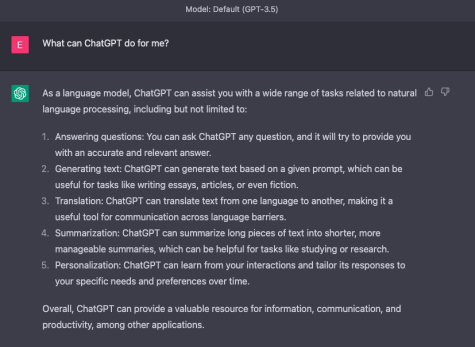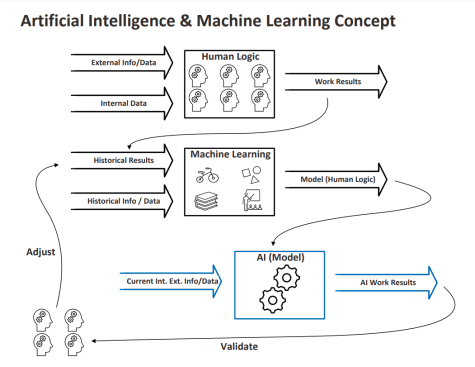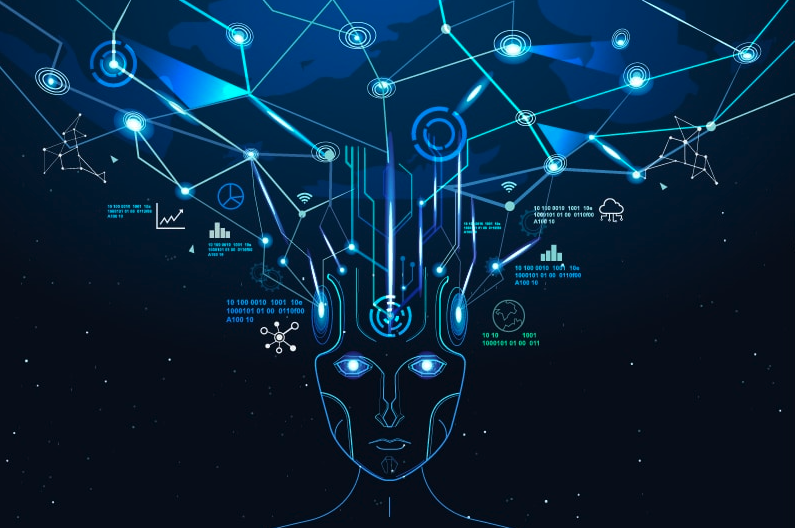Hello, AI: What is Artificial Intelligence
A “dramatic” rendition of artificial intelligence; https://www.flickr.com/photos/158301585@N08/43267970922/
March 24, 2023
A chatbot drafting an email in the blink of an eye, AI-generated images of events that never occurred, and art generators curating pieces with just a few words–the rise of AI technology has left the world on edge. What will happen next?
Before we can speculate on whether or not a generation of robots is going to take over the world, we need to understand what artificial intelligence (AI) is. According to the Encyclopedia Britannica, AI is “the ability of a digital computer or computer-controlled robot to perform tasks commonly associated with intelligent beings.” This means being able to recognize patterns, discover meaning, reason, and more–imagine the assistant on your phone but supercharged to a whole new level.

In November of 2022, AI research and deployment company OpenAI, released such a system. It’s called ChatGPT. As described on the company’s website, ChatGPT is able to follow the instructions stated in a prompt and provide the user with a detailed response. If you look to the image above, you can see the chatbot explain its different functions. It is free to use on the OpenAI website.
AI contains the word “intelligence” because of the functions that carry out such tasks, mimicking the abilities of humans. As you can see in the fifth answer in the screenshot, AI constantly learns from the interactions it has–meaning, like humans, they are always developing.
Yet, despite what AI can accomplish, it cannot learn by itself. Management consultant company, Gartner, explains that human data scientists complete tasks that range from framing data to preparing it and continuously update the software based on the rise of new facts and information. This is done through a process called machine learning (ML).

University of California Riverside (UCR) Anderson Graduate School of Management lecturer, Kan Wang, teaches courses on information systems. He shares with us the correlation between AI and machine learning.
“Machine learning is the process where we are leveraging computing capabilities to identify patterns in data,” said Wang. This data can be any type of digital information (books, videos, pictures, text, etc). “The patterns identified are known as models.”
Wang elaborates and says that an AI will utilize these models in order to behave like an intelligent being. AIs like ChatGPT utilize ML models to operate the way they do.
And while ChatGPT isn’t the only available AI you can use, it does come with benefits, while simultaneously raising concerns on the validity of things like student work.
However, this doesn’t bar students from utilizing the system as a resource.
Roosevelt senior and freelance web developer, Nataniel Jayaseelan, hopes to pursue post-secondary school in computer science or aerospace engineering. He’s had some time to experiment with ChatGPT and use it to assist with copywriting, the process of creating persuasive and convincing promotional material.
“Trying to find the right words to say to grab the audience’s attention is certainly difficult… by using ChatGPT, I was given a fully composed template that cut the time I would have spent writing hundreds of drafts,” said Jayaseelan. He goes on to mention how using the chatbot for assistance allowed him to focus more on the programming aspects of his work.
Whether you see AI as an exciting step towards the future or are skeptical of its function, it has certainly made its way to the spotlight. This column, “Hello, AI,” is dedicated towards deepening your understanding and keeping up with AI.


